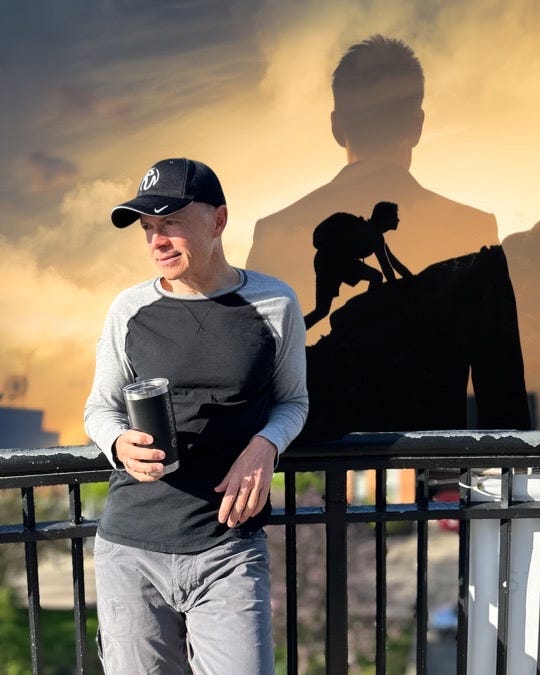Dear Why Team member,
I hope this week’s message finds you well and encouraged to learn from setback.
Why?
Last week we talked about learning from setbacks and letting go of frustration especially when we are close to reaching a goal - which reminds me of a book I read about five years ago, "How to Become a Straight-A Student" by Cal Newport.
Cal is a Phi Beta Kappa graduate of Dartmouth who went on to MIT for his Ph.D. and is now a professor at Georgetown. His book presents a new way of learning: start with intense blocks of non-distracted time studying then, the ultimate integration of the learning is to actually teach what you learned to an imaginary class.
We all learn in various ways. We learn by reading, listening, writing and by doing (the task) but, teaching what we have learned is, apparently, the most productive way to assimilate and apply what we learned. There are writings that speak to the power of the spoken word. And it makes sense that no spoken word is more impactful on our life than the words we hear coming forth from our mouth. Much of our Why Team objective is an observation and integration of these types of truths in our lives.
It is where we don't know that we most grow. The know-it-all rarely grows at all.
I know now that when I face an audience, there are those open to hear thoughts and ideas that are challenging and there are those currently closed to new ideas.
In fact, much of my presentations are designed to invite an opening, a vulnerability, by expressing my own, where new ideas may best find Root. When we have our walls up, we are protecting our worldview from hurt and suffering, but we are also limiting our worldview because of the walls.
I am often humbled by this old saying: those who don't know, talk, and those who don't talk, know. Then I am reminded of something I heard from one of my teachers long ago: "We teach most what we want to learn".
I am very much on this journey with you. I share my experiences to learn from them and hope they may serve you on your journey.
Where we don't know is where we can most grow. All our possibilities are found in the “don't-know future”. And the more we seek certainty in the future, the less growth we will experience.
Those who are certain to not die in a car accident are those who stop driving.
Does the future excite you more than it scares you?
Is not the fear an invitation to grow?
I love these words from a song by the Clash: "Should I stay, or should I go? If I go there could be trouble, if I stay it could be double".
Could the more we know mean the less we grow? And could not growing double the trouble? How often do you say No versus Yes and Why the choice? I am a fan of healthy boundaries and coming to know one’s weaknesses that truly could double the trouble by saying Yes - this is not an invitation for the knee-jerk reaction but, how many say No simply focusing on all that could go wrong? Isn’t it interesting that “jerk” is in the description? But it is an invitation to face more courageously what is in your present moment, rather than to flee it.
Every yes is a no to something else – and vice-versa. How open minded is the know-it-all? The know-it-all rarely grows at all!
The Greeks believed a true-love relationship was achieved when both partners were committed to being both student and teacher.
May we, the Why Team, be fortified by this insight and continue to express our love - growing together - learning and teaching, teaching, and learning.
Make it a great week,
Steve Luckenbach






